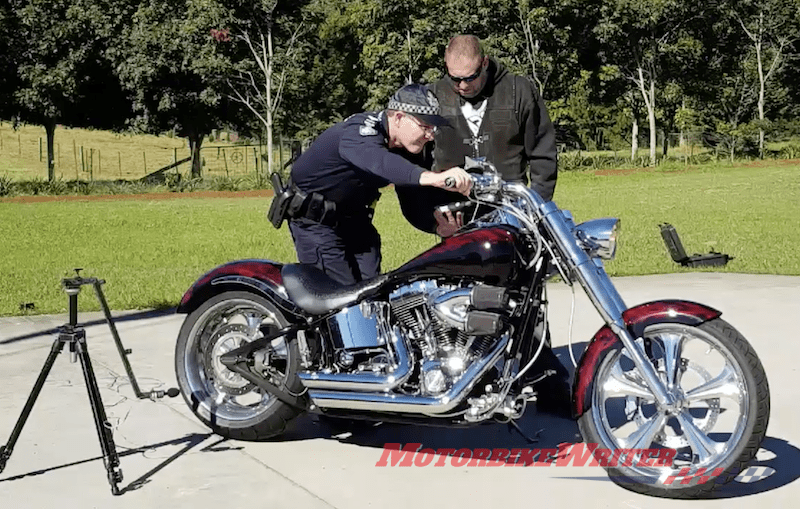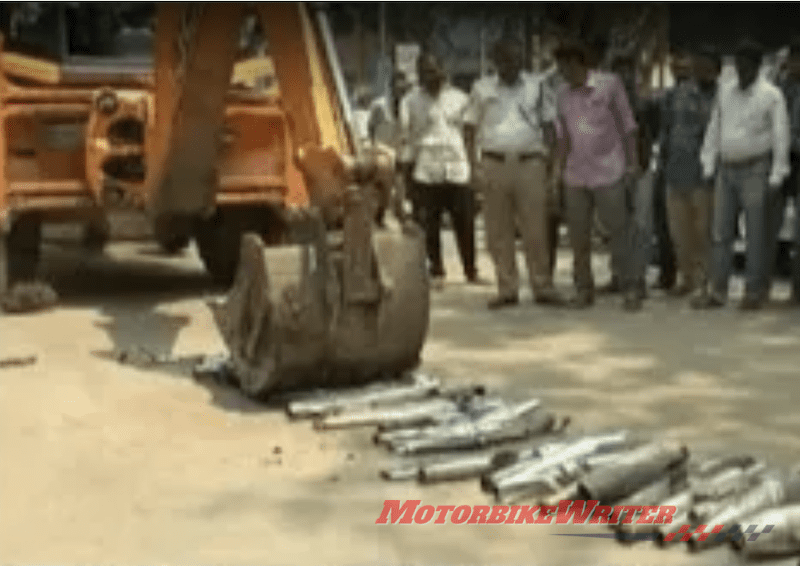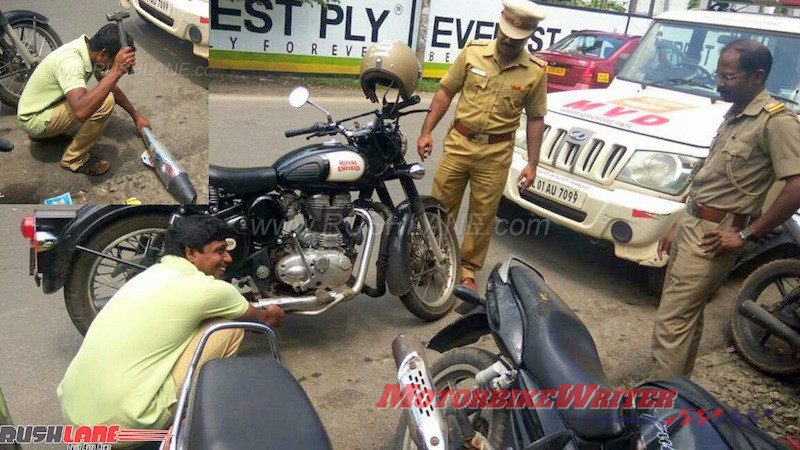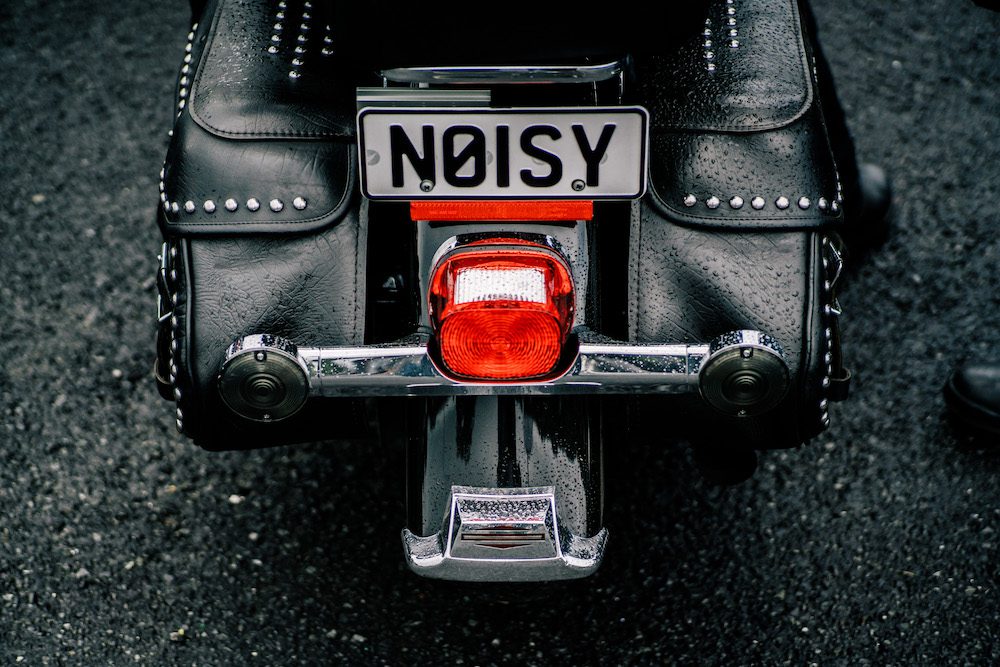If you think the cops are tough on noisy aftermarket exhausts here, try India where they hammer them flat by the roadside, or confiscate them and flatten them with a backhoe.
Police in Bangalore take noisy exhausts off bikes and flatten them with a hammer by the roadside.
Now police in Danvangere near Bangalore are taking things to the extreme with a bunch of exhausts being flattened by a JCB backhoe.
It was a special presentation for the press to show they are serious about the crackdown on aftermarket mufflers.
Indian riders with noisy mufflers face a fine and warning to replace their exhaust.
However, if you are caught twice with a modified exhaust police may seize the motorcycle and destroy the muffler.
Flatten noise
Police and local authorities around the world effectively flatten noisy motorcycles with various noise limits and punitive measures.
For example, in Australia, the stationary noise level for a motorbike built after February 1985 is 94dB, in India it’s 90dB and in Detroit Motor City exhausts are banned if they can be heard 50m away!
Yet, a 2017 World Health Organisation report found that the sound of car tyres on pavement is a bigger contributor to noise pollution.

Testing times
Brisbane Barrister Levente Jurth argues that aftermarket exhausts are not illegal. Read his full argument here.
He says police and authorities do not have the expertise or objectivity to sustain a conviction for the alleged offence.
Meanwhile, longtime motorcycle advocate Wayne Carruthers says riders in regional areas have limited access to noise testing stations to find out if their pipe is legal.
We asked Queensland Police how riders who want to comply with noise regulations could confirm their bike’s noise output.
They replied that the motorcycle should have a label advising of the decibel level, that all new bikes complied and that “there are exhaust shops that have the required equipment to test the noise level of vehicles”.

However, Wayne says the location of official noise-testing stations can be an expensive problem for rural riders.
“People in regional areas who have been issued a notice by police can have considerable time and expense wasted just in getting to a testing location to have the notice lifted,” he says.
“In NSW and Queensland, in particular, those in western regions can have 1000s of kilometres to travel with at times up to two days taken out of work simply to attend a testing station.
“This is not practical for many motorists not just motorcyclists and a clear example of the inequity of application of the state regulations.
“The testing for noise and emissions needs to be reconsidered by governments and authorities.”
He says it should be returned to authorised testers as per annual registration systems.
“The systems in place in the some states would surely be an embarrassment to the relevant Ministers and not sit well with regional voters,” he says.
Noise testing locations
Queensland: This website (click here) does not refer to vehicle noise testing, while this website (click here) has a pdf re motorcycle noise but no information on location of testing stations.
NSW: The EPA website incorrectly states for motorcycles manufactured after 1 March 1984 is 94 decibels. Many motorcycles sold including BMW S1000RR 2015 have stickers indicating approval with 107dbA.
There are only eight NSW test centres listed on this website and they are mostly based around the major centres of Newcastle, Sydney and Wollongong with only Coffs Harbour and Wagga listed for regional areas.
Examples of the distances a motorist would need to travel in NSW are:
Broken Hill – 1500km round trip to Wagga Wagga
Bathurst – 280km round trip to Richmond
Dubbo – 660km round trip to Richmond
Coonabarabran – 1150km round trip to Wagga Wagga
Tamworth – 600km round trip to Coffs Harbour
Tenterfield – 600km round trip to Coffs Harbour
Victoria noise testing locations (click here).
Tasmania noise testing locations (click here).
South Australia: Noise Testing appears to be done by DPTI inspection stations.
Western Australia: Only six authorised private Noise Level Assessors are listed.
ACT and Northern Territory: Unknown




